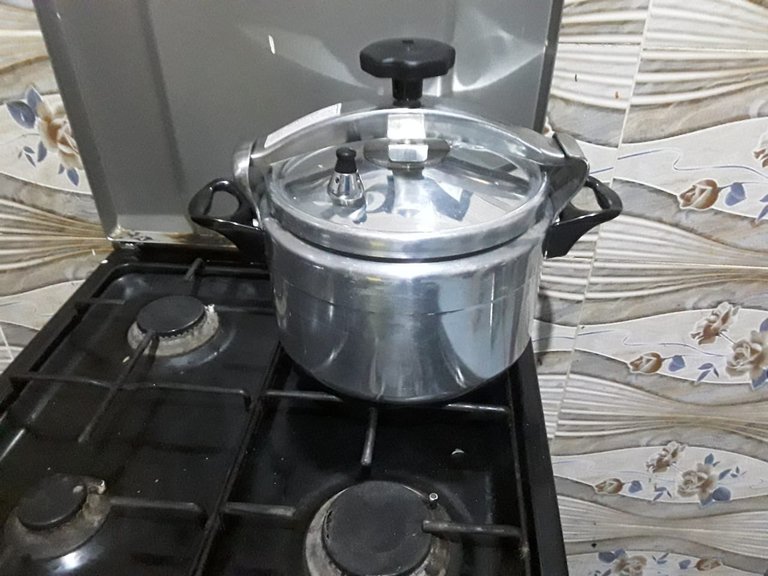Why I decided to get a pressure pot

The economy of Nigeria is on the brink of collapse, and this postulation has nothing about being pessimistic. The general inflation is crazy with many basic goods tripling in prices within a 4-week period. I'm not even exaggerating.
Tough times, they say, require tough measures.
Cooking gas represents one of the basic needs for every household. Between last year and now, the price per kg of cooking gas moved from three thousand and five hundred Naira to over fifteen thousand Naira. Ordinarily, I would have quoted these prices in dollars, but that would not do justice to the message I'm trying to pass, the reason being that the genesis of this inflation is the dovetailing of the Naira value against the dollar.
Of course, there are alternatives to cooking gas. I could have opted for cooking with electricity but on one hand, the electricity supply is epileptic, and on the other hand, electricity units are damn expensive. Another alternative would be to use firewood or coal but we all know how primitive and inconvenient those can be.
So, I decided to explore ways to limit energy usage in terms of cooking gas. The idea to start using pressure pots filtered into my mind. Cooking with a pressure pot will save you both time and gas. For example, a spent just 20 minutes cooking beans this morning using the pressure pot while ordinarily, this could have consumed up to 2 hours of cooking time and burning gas.
How does a pressure pot save you time and gas?
If you are a physics student or someone who's taken physics as a borrowed course before, you probably already know the mechanism that makes pressure pots cook faster. If you don't already know, keep following me.
Any form of cooking method that requires boiling needs water. At atmospheric temperature, water boils at 100 degrees Celsius. Below this pressure, the boiling point of water lowers accordingly, and above this pressure, the boiling point of water increases accordingly. In other words, the higher the pressure, the higher the temperature at which water boils, and the lower the pressure, the lower the temperature at which water boils.
If you boil water in an opened container under atmospheric pressure at sea level, the water will boil at an exact temperature of 100 degrees Celsius. When the container is covered, the pressure within the container becomes elevated as the water molecules collide with one another and the wall of the container. This increased molecular collision also leads to the formation of water vapor bubbles within the liquid. As these bubbles rise to the surface, they escape into the surrounding atmosphere within the container, causing the characteristic bubbling and vaporization associated with boiling. The temperature at which this vapor pressure equals the pressure within the container becomes the boiling point of water in that container.
Thus, water boils at a slightly higher temperature in cooking pots with lids that are not completely sealed. A pressure pot is completely sealed (except for the pressure release valve) and the bulging pressure from molecular collisions and steam has nowhere to escape unlike in opened pots or partially closed pots. Consequently, water is able to boil at a much higher temperature and the increased entropy makes cooking to be faster.
According to the website exploratorium
When you cook in a regular pot at atmospheric pressure (14.7 pounds per square inch [psi]), water boils at 100°C (212°F). Inside a pressure cooker, the pressure can increase by an additional 15 psi, to almost 30 psi. At that pressure, water boils at 121°C (250°F).
It is interesting to see the difference that a difference of 21°C in cooking temperature can make when it comes to time and the energy energy consumed. If a bean that will normally take me 2 hours to cook only takes me 20 minutes, that's like a difference of an hour fourty minutes. If my mathematics is still anything to go by, that's conserving about 86% of the energy that would have been needed.
Even though the pressure pot came at a cut-throat price as far as my financial status is concerned, it will definitely pay off in the long run.
What do you think?
Thanks for your contribution to the STEMsocial community. Feel free to join us on discord to get to know the rest of us!
Please consider delegating to the @stemsocial account (85% of the curation rewards are returned).
You may also include @stemsocial as a beneficiary of the rewards of this post to get a stronger support.